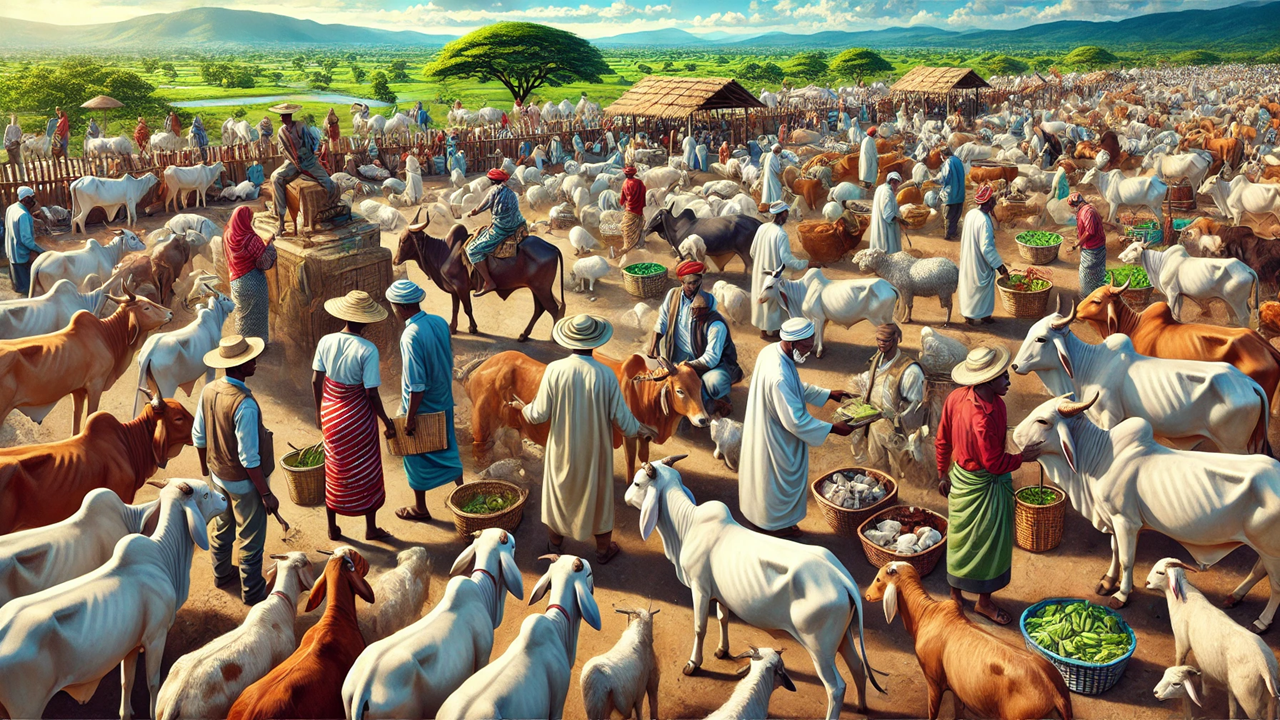Tanzania’s Economic Resilience and Livestock Sector Potential: A Path to Sustainable Growth
Tanzania demonstrates steady economic growth amidst external challenges, while prioritizing climate-smart strategies to unlock the potential of its livestock sector. With a positive economic outlook and necessary public investments, the country aims to enhance productivity and competitiveness.

Resilient Growth Amidst Challenges
Tanzania’s economy has shown remarkable resilience, maintaining a steady growth trajectory despite facing multiple external shocks. According to the latest Tanzania Economic Update by the World Bank, the country’s real GDP growth increased from 4.6 percent in 2022 to 5.2 percent in 2023. This robust performance is attributed to a thriving services sector and favorable terms of trade.
Despite this economic progress, the pace of poverty reduction has been slower than anticipated. Factors such as slow structural transformation, stagnant agricultural productivity, and high population growth have hindered the potential impact of economic growth on poverty alleviation. To address these issues, the Tanzanian government has ramped up public spending on goods, services, and transfers in FY2023/24, aiming to enhance the provision of priority social services.
Monetary Policy and Inflation Control
In terms of monetary policy, the Bank of Tanzania (BoT) has taken significant steps to control inflation and manage foreign exchange pressures. Inflation has remained subdued, averaging 3 percent year-on-year in the first three months of 2024. This stability is a result of prudent monetary policy measures and government interventions to ensure adequate food supply and manage domestic energy prices.
The BoT raised the policy rate to mitigate domestic demand pressures on foreign exchange. The growth rate of extended broad money (M3) dropped significantly, while private credit growth decelerated. These measures are part of a broader strategy to ensure economic stability and sustainable growth.
Harnessing the Potential of the Livestock Sector
Tanzania's livestock sector holds considerable potential for contributing to the country’s economic growth. However, this sector faces significant challenges, including climate-related risks and inadequate investment. To realize its full potential, Tanzania must adopt climate-smart measures and innovations that enhance resilience and productivity.
The report highlights the importance of the livestock sector for the livelihoods of many households, providing food, draft power, and income. Despite having a large livestock population, the sector’s contribution to GDP and agricultural GDP is relatively limited compared to neighboring countries like Kenya and Ethiopia. This is due to various structural, institutional, and systemic challenges, including inadequate infrastructure, limited access to inputs and credit, and complex policies.
Addressing Climate Vulnerability
Climate change poses a significant threat to Tanzania’s livestock sector, with erratic rainfall and higher temperatures impacting water and feed availability. These climate-driven challenges intensify resource competition and land degradation, particularly in arid and semi-arid regions. To address these issues, the report emphasizes the need for substantial public investment—approximately US$546 million over five years—to effectively tackle the sector's multifaceted challenges.
Implementing climate-smart practices is crucial for mitigating climate risks and enhancing productivity. This includes improving infrastructure, technical capacity, and access to essential resources like land, water, and fodder. Additionally, enhancing trade and value addition, along with adopting climate-smart practices, is vital for boosting the sector's competitiveness.
Unlocking Opportunities
Despite the challenges, Tanzania’s livestock sector presents significant growth opportunities. The country’s strategic location, rich diversity of indigenous livestock breeds, and increasing demand for processed livestock products offer substantial potential for expansion. Leveraging digital technological advancements can further enhance the sector’s resilience, productivity, and efficiency.
The report suggests that a favorable business environment and supportive policies are essential for attracting private investment and fostering innovation in the livestock sector. This includes improving veterinary services, disease control measures, breed improvement programs, and research funding. Strengthening sector governance and institutional capacity is also crucial for ensuring effective implementation and sustainable practices.
Tanzania stands at a pivotal point in its economic development journey. By addressing the challenges in its livestock sector and implementing climate-smart strategies, the country can unlock significant economic potential. With robust public investment and supportive policies, Tanzania can enhance productivity, boost competitiveness, and achieve sustainable growth, benefiting millions of its citizens.
For a comprehensive understanding of Tanzania’s economic developments and the potential of its livestock sector, refer to the full report: "Tanzania Economic Update: Harnessing the Opportunity for a Climate Smart and Competitiveness Livestock Sector in Tanzania" by the World Bank.
- FIRST PUBLISHED IN:
- Devdiscourse
ALSO READ
Union Cabinet Greenlights Infrastructure Projects to Propel Economic Growth
Tanzania's Triumph: Last-Gasp Equalizer Secures Last 16 Place
Tanzania Clinches Last 16 Spot with Historic Draw at Africa Cup of Nations
Unleashing India's Tourism Potential: Turning Visitor Numbers Into Economic Growth
Odisha's NH-326 Transformation: Paving the Way to Economic Growth










